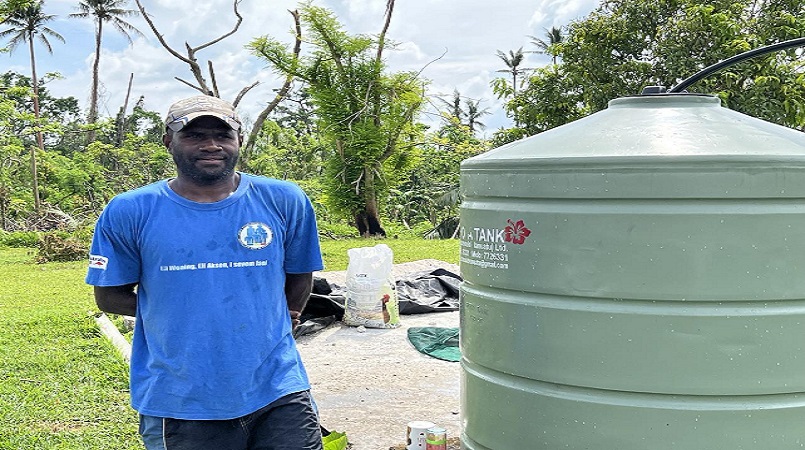
Wages from seasonal work in New Zealand and Australia are helping protect rural villages in Vanuatu from cyclones.
“We came from a place that had no water,” says Kalter Kalsilick, who lives in the village of Eton.
Kalsilick came to New Zealand in 2017 and picked apples in Hastings before heading south to Blenheim to pick grapes reports PMN News.
He returned seven months later and spent 250,000 vatu ($3,280 NZD) on a drill that could burrow down to the water table.
“My aim was to provide a water system for my village, and this is beneficial for my village but also for my family because I am also building a house for them.”
Kalsilick has also worked in Australia farming blueberries and mangoes, and plans to go again.
“If I go back again I will build a better house, because using local materials, they’re not strong enough during cyclone season.”
Kalsilick says there is talk of being paid more in Australia, but was able to save money in both countries because he had a savings target in mind.
“It’s how you manage your money, how you manage yourself and how you stick to your goal.”
On the far side of Efate island is Pang-Pang village, where more than a dozen families have family members working offshore.
Rosie Henry’s husband will return from New Zealand next month, where he’s been picking apples.
“Before he went, we planned together what to do with his earnings. We paid our kids' school fees, and later we will build a house, which is still not complete.”
Her husband and his friends pooled their money to buy a vehicle to help out in the community.
The village is part of the Climate Resilient Island programme, which supports communities to share indigenous knowledge and build sustainable food systems.
Farm manager Philip Jonathan used his RSE income to build a flush toilet and shower for his family, along with a concrete house, where 40 people took shelter during last month’s twin cyclones.
Seasonal worker scheme needs to work both ways
The recognised seasonal employer (RSE) scheme was set up in 2007 to plug labour gaps in New Zealand, along with providing short term jobs for workers from the Pacific.
Foreign Minister Nanaia Mahuta says the partnership is beneficial to New Zealand’s horticultural industry, but the local benefits are also important.
“It’s the difference between having a water tank or materials to rebuild, being able to do really practical things for families, and so the value that comes back is really appreciated by their whānau, their village and their country.”
New Zealand has recently increased the number of RSE workers from the Pacific to 19,000 per year, and the largest group of workers is from Vanuatu, but there are calls to match Australia, which has no cap.
Mahuta says workers bring back their work experiences and learnings from their time in New Zealand, but it needs to work both ways.
“In the Pacific, partners make a huge sacrifice to enable their family members to come to New Zealand and work, so we’ve got to be really mindful that when we are saying to employers to look after their workers, often they’ve left their partners and their children and their parents and their family responsibilities to come to New Zealand to work, and then to be able to contribute back to the wellbeing of their whanau, back in their country, we just have to be mindful of that, as New Zealand continues to ensure we have good employee-employer relationships.”
Samoa has ended a suspension on RSE workers, after concerns too many local workers were being lured by the higher wages offshore.
Mahuta says New Zealand must appreciate each country’s context, and tailor that relationship.
“Perhaps the conversation that we might move ourselves towards is, ‘How can we ensure that we have a reciprocal arrangement that benefits both countries, but also that identifies where it won’t be a drain on the domestic labour market of our Pacific countries?’”
Kalter Kalsilick was able to use his RSE wages to provide water for his village, and wants to upgrade his house with future earnings. Photo/PMN News/ Khalia Strong
